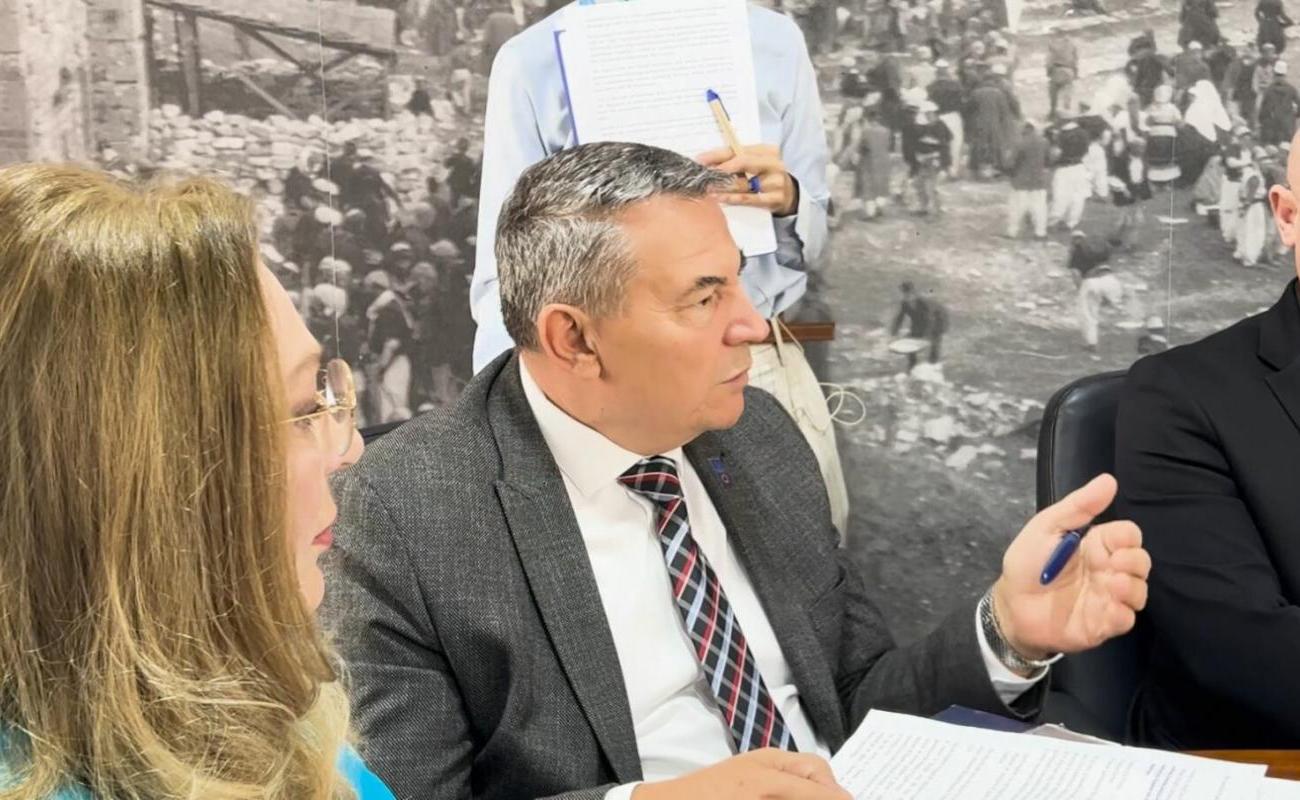Shkodra Scales Up Disaster Resilience with Swiss-UNDP Support

RESEAL Phase II launches, focusing on updated risk assessments, local capacity building, and replicating successful models for long-term resilience.
SHKODRA, Albania – October 31, 2025 – The United Nations Development Programme (UNDP), the Swiss State Secretariat for Economic Affairs (SECO), and Albania's National Civil Protection Agency today launched the second phase of the Resilience Strengthening in Albania (RESEAL) project at an event hosted by the Prefecture of Shkodra. This flagship project marks a strategic shift from reaction to increased preparedness and prevention from disaster risks.
The launch brought together key stakeholders, including Ms. Majlinda Angoni, Prefect of Shkodra; mayors from across the prefecture; and high-level representatives from the Ministry of Defense, the National Civil Protection Agency (NCPA), the Embassy of Switzerland, and UNDP.
"This new cooperation on climate resilience focuses on better preparedness and prevention of natural disasters and with this also on the prevention of economic losses", said Philipp Arnold, Deputy Head of Mission at the Embassy of Switzerland. "By focusing on the Shkodra region, we are targeting support where the risks are high. This project will equip local authorities with the tools, knowledge, plans and capacities needed to protect population and businesses, creating a model of resilience for sustainable prosperity that can be replicated across the country."
Ms. Randi Davis, Resident Representative of UNDP in Albania, emphasized the transformative goal of the phase: "True resilience is built from the ground up. While Phase I laid the essential legal and institutional groundwork, RESEAL Phase II is about empowering local governance. By working hand-in-hand with the mayors and the Prefecture of Shkodra, we are ensuring that disaster risk reduction becomes a practiced reality that saves lives and safeguards economic development."
The RESEAL Project Phase II, which runs until December 2028, is supported by a contribution from the Swiss Government, alongside the Albanian Government, following a partnership agreement signed in December 2024. Its strategic objective is to make Shkodra region more resistant to natural hazards and better prepared institutionally, technically and financially for coping with negative effects of climate change.
Building on the foundational policies and systems established in Phase I — which culminated in Albania's accession to the EU Civil Protection Mechanism — Phase II is designed to deepen institutional reforms and strengthen operational capacities on the ground.
The project will deliver support directly to Prefecture of Shkodra and the municipalities of Shkodra, Malësia e Madhe, Puka, Fushë-Arrëz, and Vau i Dejës. Key interventions include:
- The development of a Local Civil Emergency Plan and a Regional Risk Assessment.
- Intensive training for municipal staff, simulation exercises, and the standardization of Standard Operating Procedures (SOPs).
- Strategic investments in emergency equipment and critical infrastructure.
- The integration of Disaster Risk Management (DRM) into school curricula and public awareness campaigns.
The Shkodra region experiences significant and recurring impacts from flooding and extreme weather events, phenomena exacerbated by climate change.
The RESEAL project represents a concrete, collaborative effort to translate national strategies into local action, directly enhancing the safety and security of communities. It promotes urban development that is resilient to climate change by taking drought and flood risks into account in urban planning.
The RESEAL Project Phase II is fully aligned with the Sendai Framework for Disaster Risk Reduction and supports Albania's progress toward EU compliance, contributing to a safer and more resilient future for all its citizens. The project is funded by the Swiss State Secretariat for Economic Affairs (SECO), with co-financial contribution from the Government of Albania and implemented by UNDP in partnership with the National Civil Protection Agency.
